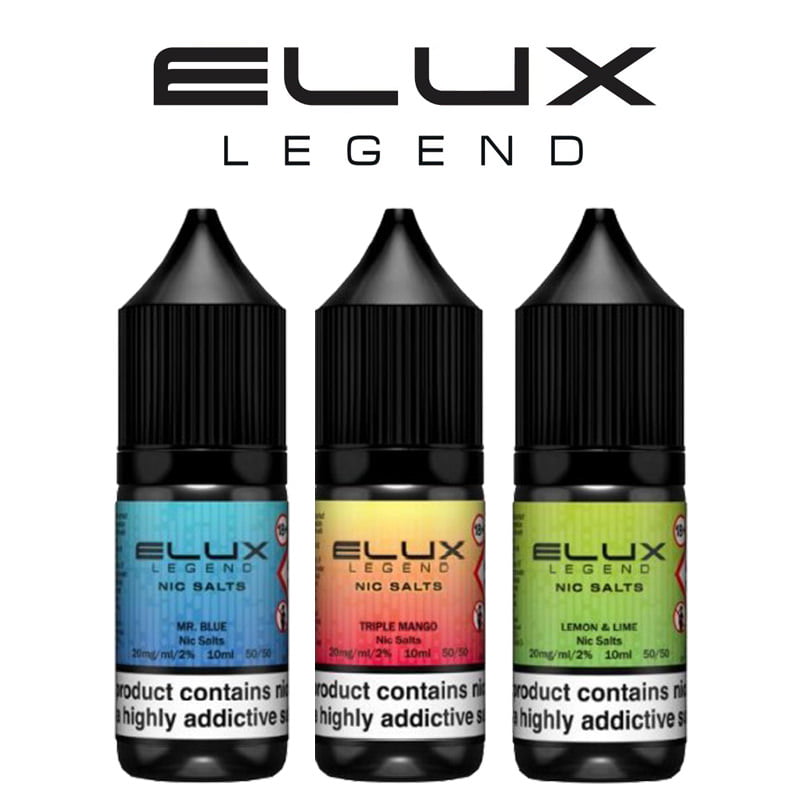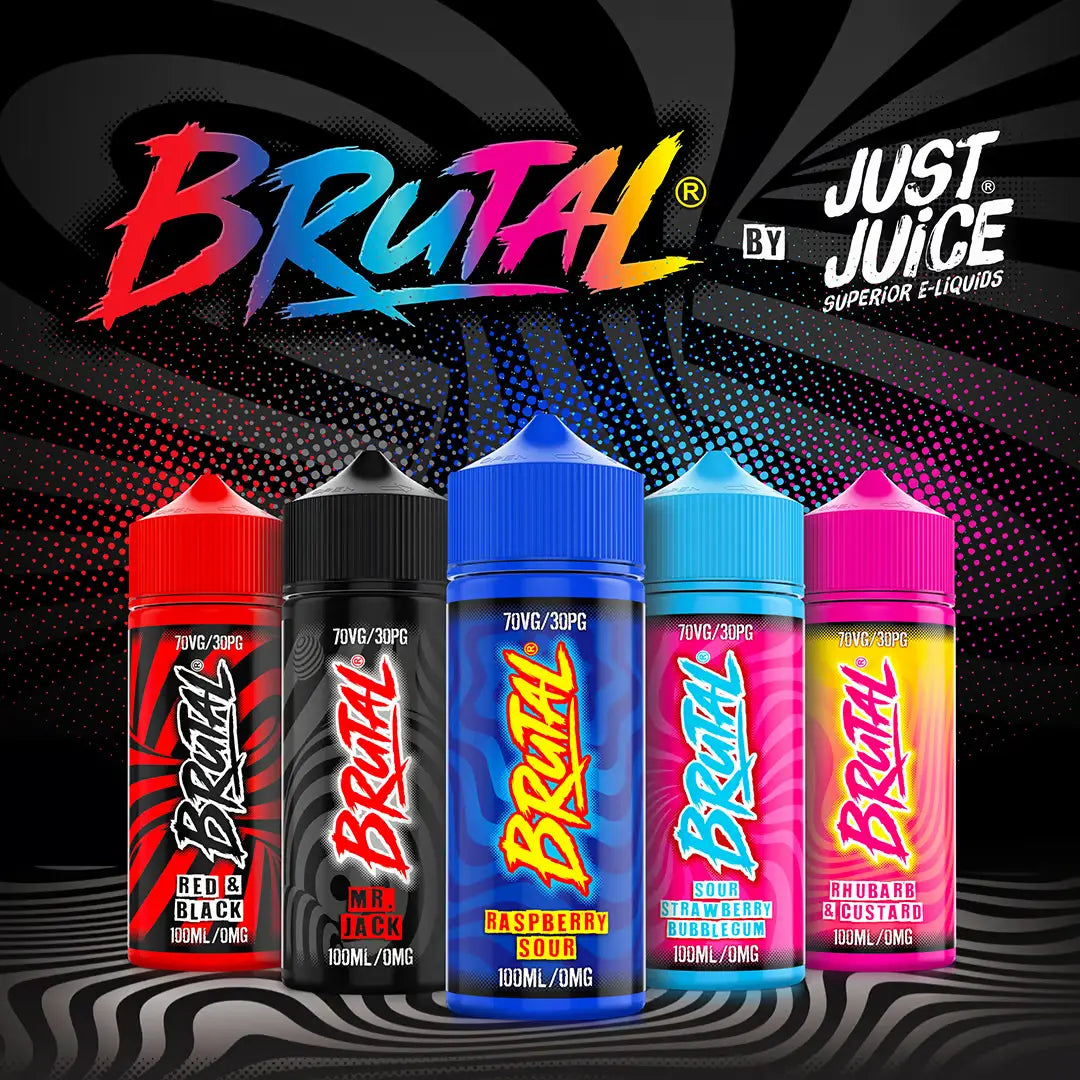
UK Vaping Laws Unraveled: What's Legal and What's Not
What Vapes Are Illegal in the UK?
In the vibrant world of vaping, where a myriad of flavours and devices awaits, it's crucial to ensure that the products you choose are not only enjoyable but also legal and safe. The United Kingdom boasts a complex regulatory landscape governing vaping products, and while most adhere to these standards, there are some that don't. In this article, we'll guide you through the intricate regulations concerning vape products in the UK and pinpoint the criteria that render certain vapes illegal, including excessive nicotine strength, tank size, and E-Liquid volume.
Illegal Vapes in the UK
You're less likely to encounter illegal vapes in reputable vape shops or established online vape retailers. Instead, the greater risk lies in "general retail" shops, including your corner store, phone repair shop, or novelty candy shop. These outlets may stock non-compliant vaping products that pose risks to users, as they lack proper regulation and evaluation for safety and quality.
Disposable Vapes
Disposable vapes have gained popularity in the UK due to their simplicity and ease of use. Unlike traditional vapes, they come pre-filled with E-Liquid and a charged battery, making them ideal for those seeking a straightforward vaping experience. Unfortunately, there is a concerning proliferation of illegal disposable vapes in the UK.
Here's how to spot an illegal disposable vape:
- Nicotine Strength: Legal nicotine E-Liquid volume in UK disposable vapes is limited to 2ml, providing around 600 puffs. If you come across a disposable boasting more than this (or containing more than 2ml of E-Liquid), it's illegal.
- Nicotine Content: If a disposable vape contains over 20mg/ml (2%) nicotine, it exceeds the legal limit in the UK and is therefore illegal. In contrast to some other parts of the world, the UK restricts nicotine strength to 20mg/ml.
Avoid illegal disposable vapes, as they lack safety and quality evaluations by UK regulatory agencies. The contents and safety of these products are uncertain, making them a risky choice.
Tank Sizes
Vape tank size is another crucial factor in UK vaping regulations. The legal limit for E-Liquid capacity in a vape tank is 2ml. Any tank exceeding this limit is considered non-compliant and, consequently, illegal. However, vapers can purchase "bubble glass" for popular tanks, which increases E-Liquid capacity (usually up to 3ml) and remains within the legal boundaries.
Nicotine Content
Nicotine strength plays a pivotal role in vaping, with a legal limit of 20mg per millilitre of E-Liquid (2% nicotine) set by UK regulators. All E-Liquids in the UK must adhere to this limit for approval and sale. While vapers who create their DIY E-Liquids may have legal workarounds, commercially available E-Liquids in the UK cannot exceed 20mg/ml nicotine.
Bottle Sizes
In the UK, there are legal restrictions on the bottle size of nicotine-containing E-Liquids. These E-Liquids cannot exceed 10ml in size, which is why you'll find 10ml bottles for NicSalts, 50/50 juices, and nicotine shots. For sub-ohm and DTL vapers who consume more E-Liquid due to the types of coils used, this bottle size limit posed a challenge. To accommodate their needs, the vaping community devised a clever solution known as "shortfills." These are larger bottles, often 50ml or 100ml, filled with nicotine-free E-Liquid and a space for adding a nicotine shot, enabling sub-ohm and DTL vapers to purchase larger volumes without breaching the bottle size limit.
Navigating the intricate world of vaping regulations is vital for a safe and enjoyable experience. Be aware of these key criteria for illegal vapes in the UK, and always opt for reputable sources when choosing your vaping products. Your safety and satisfaction are paramount, and adhering to legal standards ensures a responsible and enjoyable vaping journey.
Banned Vape Ingredients
Vape E-Liquids typically consist of propylene glycol, vegetable glycerin, flavourings, and nicotine. However, there are specific ingredients banned from E-Liquids in the UK, with diacetyl being the most notorious. Diacetyl was once used in vapes to create a buttery flavour for dessert vapes but is now illegal in UK E-Liquids due to historical associations with the "popcorn lung" phenomenon.
It's essential to emphasize that there has never been a confirmed case of popcorn lung linked to vaping. Additionally, traditional cigarettes contain diacetyl, but, similarly, there's no known case of popcorn lung associated with smoking. Some other ingredients banned in UK E-Liquids based on government guidance include:
- Respiratory sensitizers
- Vitamins used as food supplements
- Stimulant additives such as caffeine or taurine
- Diacetyl
- Pentane 2,3 dione
- Diethylene glycol
- Ethylene glycol
- Formaldehyde
- Acetaldehyde
- Acrolein
- Metals like cadmium, chromium, iron, lead, mercury, and nickel
- Preservatives liable to release formaldehyde
While these ingredients are highly unlikely to be found in commercial E-Liquids, it's important to note that the government has identified them to ensure the safety of vapers.
Vaping Laws in the UK
Understanding the legal framework for vaping in the UK is crucial for a safe and compliant vaping experience. Vaping isn't prohibited across the UK, but certain restrictions apply to specific areas and organizations. These limitations are generally set by private property owners, businesses, or public spaces, mirroring the rules for smoking.
Legal Limit on Nicotine Strength
The European Union Tobacco Products Directive (EUTPD) mandates a legal limit on nicotine content in E-Liquids, which stands at a maximum of 20mg/ml (2%). Compliance with this regulation ensures a safer vaping experience for consumers.
Nicotine Warning Label Requirements
UK law mandates stringent labelling on all nicotine-containing products, as per the Tobacco & Related Products Regulations (TRPR). Labels on these products must be child-resistant, tamper-evident, and display clear health warnings. Additionally, a raised triangle symbol is present on the label to assist those with vision impairments. These labels also provide accurate information about the product's ingredients and nicotine strength.
Regulatory Oversight
Several regulatory bodies oversee and enforce vaping laws in the UK, including TPD, TRPR, and the MHRA. These agencies collaborate to ensure that all vaping products adhere to established laws, particularly concerning the health and safety of the public, especially children and young people.
Conclusion
The issue of illegal vapes in the UK underscores the critical importance of regulatory compliance. Recent concerns with brands like Elf Bar overfilled their disposable vapes have highlighted the gravity of this issue. While authorities have determined that this overfilling posed no safety risk, it's essential for consumers to make informed choices.
By purchasing from reputable retailers like Vape Saloon, you can be confident that the products you choose are both legal and of high quality. We encourage you to exercise caution and only buy your vape products from trusted UK vape retailers like us, who ensure the quality and legality of their offerings.
Your safety and satisfaction are paramount, and adhering to legal standards guarantees a responsible and enjoyable vaping experience.






